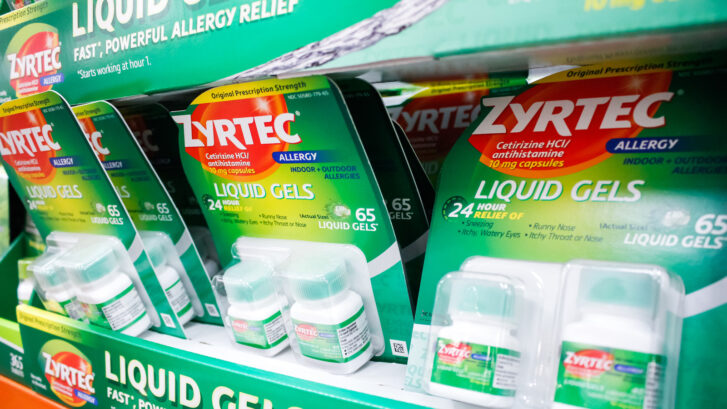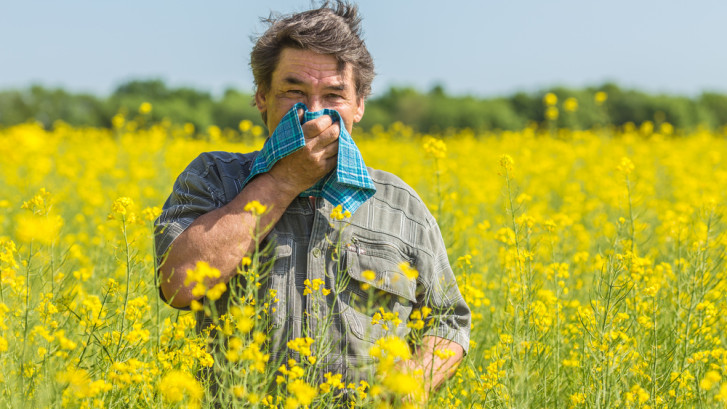Surviving Spring Allergies Without Gaining Weight
With the fresh air of the ocean and year-round warmth, you might be surprised to find that Florida is one of the top hot spots in the country for spring allergies. You might also be surprised to learn that some of the over-the-counter (OTC) allergy medications you automatically reach for to stop the resulting sneezing and sniffling can cause you to gain weight.
So our concierge primary care doctors in Jupiter want to tell you the differences between the various types of antihistamines and suggest other ways of battling spring allergies.
‘Pollen Storm’
As NBC News reported last month, a growing number of adults in their 30s, 40s, and 50s who’ve never had allergies before are experiencing them now.
“What I see is people coming in for the first time, especially over the last five, seven years or so,” Dr. Clifford Bassett, an allergist at NYU Langone Health in New York City, told NBC.
“They will always say, ‘I don’t understand how this is happening to me,’ ” he added.
The culprit appears to be climate change, the network reported. As CO2 levels rise, plants and trees produce more pollen, coupled with earlier spring blooms from trees. This is driving a longer season, with more severe reactions from sufferers.
“The pollen season right now is about three weeks longer than it was 30 years ago, and there’s about 20 percent more pollen in the air,” Dr. Neelu Tummala, an ear, nose, and throat specialist and co-director of the Climate Health Institute at George Washington University, told the network.
Dr. Stanley Fineman, an allergist at Atlanta Allergy and Asthma and a spokesperson for the American College of Allergy, Asthma & Immunology, calls the phenomenon a “pollen storm.”
“The pollen counts, particularly this season, have been much, much higher than we’ve seen in the past,” he told NBC.
COVID, Cold, or Allergies?
And since the dawn of the SARS-CoV-2 pandemic, now people are wondering whether their stuffy or runny nose, loss of taste or smell, and itchy, watery eyes are symptoms of COVID-19.
For instance, the loss of the senses of taste and smell can also happen with allergies and colds when the nasal passages become blocked.
In the past, doctors would say that if you’ve never had allergies before, your symptoms are likely something else, such as a cold or other type of virus. But because more people are now experiencing allergies, that’s not necessarily a reliable indicator.
Experts generally agree, however, that fever, chills, and body aches typically indicate viruses, while the telltale symptom of allergies is itching.
“The biggest symptom I would suggest is the itchiness of the eyes, nose, and throat,” Bassett said. “You don’t get itchiness if you have a cold or if you’re having a sinus infection.”
Nevertheless, it’s best to get tested if you’re experiencing new symptoms.
“We’ve definitely had patients come to our clinic who thought they were having allergies, but they had COVID instead,” Dr. Michelle Pham, an allergist, and immunologist at USCF Health in San Francisco, told NBC.
The Risk of Weight Gain
Depending on the severity of your symptoms, there are several ways to treat allergies. One of these is oral antihistamines.
But a 2010 Yale University Study that found those who regularly took antihistamines weighed more than those who didn’t gave some allergy sufferers pause. The researchers cautioned that it wasn’t clear whether those who were already overweight were more prone to allergies, and thus more likely to take antihistamines.
According to the non-profit Obesity Medicine Association, however, “Histamine decreases our hunger by in part affecting the appetite control center in our brains, and it makes sense [that] an anti-histamine would have the opposite effect. These drugs can interfere with the ‘I’m full’ signal coming from the rest of our bodies and lead to overeating.”
In fact, some antihistamines—particularly cyproheptadine—are prescribed for children and pets to increase appetite.
But not all antihistamines have this effect. The Cleveland Clinic explains that so-called first-generation antihistamines were approved in the 1930s, but had more serious side effects, including drowsiness, dry mouth, and rapid heart rate. The second-generation antihistamines, approved in the 1980s, carry far fewer side effects. They also don’t relieve nasal congestion the way many first-generation antihistamines do.
What To Do Instead
If you want to try to do without antihistamines, first, avoid exposing yourself as much as possible to pollen.
- Avoid outdoor activity in the early morning when pollen counts are highest.
- Keep windows closed, in the home and car.
- Wear a mask, hat, and sunglasses if you need to be outdoors.
- Use a vacuum equipped with a HEPA filter.
Next, rinse frequently with a saline nasal spray or a neti pot to clean out pollen in your sinuses.
Finally, try switching to second-generation antihistamines. These include:
- azelastine (Astelin)
- loratadine (Claritin, Alavert)
- cetirizine (Zyrtec)
- desloratadine (Clarinex)
- fexofenadine (Allegra)
If OTC medications aren’t working, be sure to let us know. There are prescription approaches that may help.
Keep in mind that, even if your allergies have been manageable in the past, with the stepped-up pollen levels accompanying global warming, you may need more intensive therapy.
“Before, you could get away with just using an intranasal steroid,” Tummala told NBC, “and now you have to do a neti pot rinse and then the steroid,” she said.


